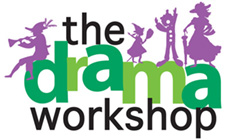VOICE
In life it is important that we are able to speak up for ourselves and express what we think clearly. In drama we do weekly exercises to train the voice, such as articulation, projection, expression, pausing, pace, pitch, inflection, emphasis and resonance. We encourage students to speak up and be heard in front of an audience, to project their voice but to refrain from shouting. Students learn how voice and breath are connected. We do a lot of breathing work that is beneficial for calming nerves before performances, school presentations and in certain social situations.
MOVEMENT
In our drama class we do a lot of movement/mime work where we focus on body language, gesture and facial expressions to create a scene and communicate a message to the audience. The performer’s use of movement tells us what a character is thinking and feeling. In the real world, this understanding of ‘body language’ and how to read it in other people, as well as an awareness of our own use of body language, is a form of emotional intelligence and is a beneficial life skill.
IMPROVISATION
Improvisation is a spontaneous performance without any planning time. Improvisational drama allows students to think quickly, trust their instincts, analyse the situation and respond in a way that is open and appropriate in order to keep the scene moving ahead. It’s also great fun and we never quite know what to expect with each improvisation session. Needless to say we are always entertained and most often end up in fits of laughter!
SCRIPT WORK
Students work with a variety of texts sourced locally from writers here in Brisbane, as well from Australian and international playwrights. Students are able to interpret the meaning behind the script and apply what they learn about voice control to the text thus bringing the characters and the story to life in a powerful and interesting way. We have also performed a number of student written plays for audiences which was a great opportunity to showcase young talent.
PERFORMANCE
Each week in drama students perform either self devised plays or rehearsed scripts for each other which is an effective way to get them used to being up in front of a group. In Term 2 parents are invited in to the class for a Presentation Day where the children perform small plays for the audience. This gives families a chance to see what we get up to in a typical lesson.
Term 4 is when we put on our End Of Year Play. Students display the skills they have learnt during the year by taking part in an ensemble performance in front of family and friends. Everyone is given his or her own specific character to play and every week we learn a new section of the play and commit it to memory. As we go along we add stage directions and develop character traits. Being part of an ensemble like this is highly rewarding, as students have to rely on each other for their cues and work as a team. Showing up to rehearsals and learning lines are all part of this group commitment. At the end of the term the play is performed in a professional venue using lights, costumes and music. It’s the highlight of our drama year and is a deeply enriching experience, as the students go away feeling great about themselves having been part of something special.
GAMES
One of my favourite things about drama is the drama games and we do plenty of them! They help the students lose their inhibitions, to relax and take a risk in front of the group. The focus is on being involved and having fun, not about getting anything right or wrong. Drama games give students a wonderful sense of belonging and acceptance within the group as we all take turns (myself included!) doing silly things and letting our hair down. It’s a liberating part of our lesson.
